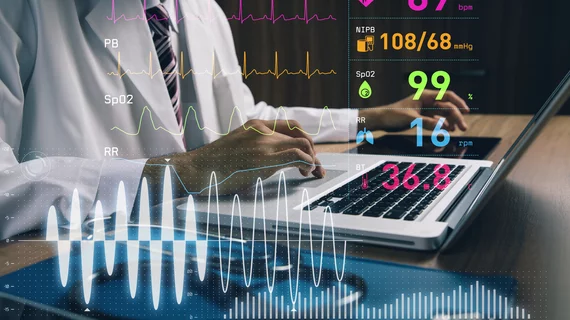ACOs could step up use of EHRs
Accountable care organizations aren’t living up to their full potential when it comes to using EHR, according to a recent report from the Office of Inspector General.
OIG conducted an insights report to understand how ACOs have utilized health IT tools to improve care coordination for patients by analyzing quality measures of six ACOs that had at least three years of experience as a Medicare ACO. OIG further conducted interviews during site visits with the ACOs and discussed how to use health IT for better care coordination with administrative staff and providers.
Overall, OIG found that health IT tools were helping ACOs better coordinate patient care, but numerous challenges still remained, with “the full potential of health IT” not being realized yet.
Care coordination is important in particular for Americans with chronic conditions who may need different levels of care across provider types. About half of American seniors (65 and older) require significant medical or functional support, according to OIG. ACOs are one alternative payment model that leverages care coordination, or the aim of ensuring patients receive the right care at the right time, to lower healthcare costs and improve quality of care.
One of the best facilitators of care coordination is EHRs, which can offer evidence-based tools to make decisions about patient care and avoid unnecessary costs.
In its report, OIG noted that ACOs that use a single EHR system across their provider networks can avoid some interoperability challenges by sharing data in real time. ACOs using one system are able to use a portal with patient care checklists that are easily accessible to all providers in its networks.
“Seamless care coordination is more challenging when ACO providers use more than one EHR system,” OIG stated in the report.
Those that had multiple systems typically had to rely on other forms of communication, like phone calls and faxes, to coordinate care and share data across providers. In some cases, providers in ACOs with more than one system didn’t have the ability to add notes to some files, not allowing data to be shared in real time.
Whether using one EHR system or many, all ACOs faced another major industry challenge: burnout, which recently earned a spot in the international classification of diseases by the World Health Organization. Managing EHRs and their associated alarms, which prompt medical professionals about potential interventions for patients, were found to play a role in burnout.
Most of the ACOs also had access to health information exchanges with little or incomplete data, while only two of the ACOs used HIEs with useful patient data. One of these had a member-supported HIE that was independently run and supported in part by funding from the state. The HIE gave ACO staff access to a single data source for all patients.
Overall, not all ACOs had robust health IT tools to better coordinate patient care, according to OIG, which recommended investing in a single EHR system across the organization. HHS and CMS have started several initiatives and recent proposals to further health IT for better patient care, including mandating free access to medical records for consumers.
“HHS has invested heavily in promoting the use of health IT tools because of the promise they hold to help patients achieve better outcomes at lower costs,” OIG stated.
See the full report here.

